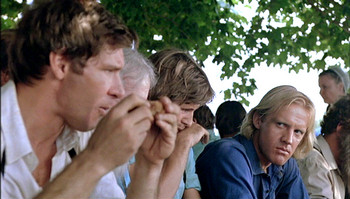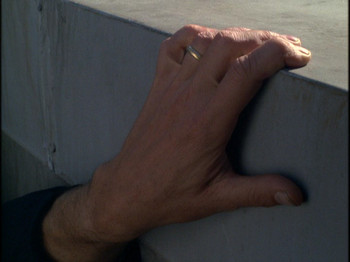My Best Post
 A common regret is watching blog-a-thons come and go with nary a contribution from Culture Snob. So I was overjoyed to see the announcement at He Shot Cyrus for the “My Best Post Blog-a-thon”: “Everyone should participate because here’s the best part: You’ve already written your entry!” What surprised me was how easy the decision was.
A common regret is watching blog-a-thons come and go with nary a contribution from Culture Snob. So I was overjoyed to see the announcement at He Shot Cyrus for the “My Best Post Blog-a-thon”: “Everyone should participate because here’s the best part: You’ve already written your entry!” What surprised me was how easy the decision was.

 More than a half-century separates these two movies, and they obviously live in different parts of town. Tod Browning’s horror classic Freaks was controversial upon its release in 1932 and hasn’t lost much shock value, with its use of real sideshow performers and the uncomfortable mixture of exploitation and sympathy. Peter Weir’s Witness is a mild drama about the Amish that masquerades as a cop thriller. (Or is a cop thriller disguised as an Amish drama?) Yet the two have much in common.
More than a half-century separates these two movies, and they obviously live in different parts of town. Tod Browning’s horror classic Freaks was controversial upon its release in 1932 and hasn’t lost much shock value, with its use of real sideshow performers and the uncomfortable mixture of exploitation and sympathy. Peter Weir’s Witness is a mild drama about the Amish that masquerades as a cop thriller. (Or is a cop thriller disguised as an Amish drama?) Yet the two have much in common. There are dozens of close-ups of hands in
There are dozens of close-ups of hands in  There’s a maxim that says a movie teaches you how to watch it, but Peter Weir’s The Truman Show teaches you how to watch it the wrong way. And in its brazen audience cues, it hints that you should question your reaction to the film. This is a movie that was made for misunderstanding.
There’s a maxim that says a movie teaches you how to watch it, but Peter Weir’s The Truman Show teaches you how to watch it the wrong way. And in its brazen audience cues, it hints that you should question your reaction to the film. This is a movie that was made for misunderstanding. You’re in your apartment. Your husband has gone to work. There’s a knock at the door. A genial man says he’s the plumber. You explain that you haven’t called for a plumber. He replies that he’s checking the pipes of all the apartments because of a pressure problem. You let him in; his story seems reasonable, and he’s got the right tools. It’s an act of trust. He says his name is Max.
You’re in your apartment. Your husband has gone to work. There’s a knock at the door. A genial man says he’s the plumber. You explain that you haven’t called for a plumber. He replies that he’s checking the pipes of all the apartments because of a pressure problem. You let him in; his story seems reasonable, and he’s got the right tools. It’s an act of trust. He says his name is Max.